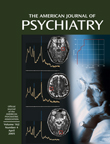Hippocampus, IV: Relational Memory
Studies of brain lesions in humans have established an important role of the hippocampus in learning and memory. For example, the ability to remember facts and events, referred to as declarative memory, relies on an intact hippocampus in humans. More recently, neuroimaging studies have further clarified the role of the hippocampus for human memory. One such aspect of memory, demonstrated via blood flow changes as measured with functional magnetic resonance imaging (fMRI), is relational memory.
The ability to learn relationships between items is an essential property of human intelligence. For example, having learned in panel A of the figure that A>B and B>C, we can infer from these two relationships that A>C. This ability, referred to as transitive inference, has previously been linked to the hippocampus in animal and human experiments. The image in panel B shows right anterior hippocampal activation during a transitive inference task for arbitrary visual stimulus patterns. The hippocampus was specifically activated during the recognition of novel pairs of stimuli (such as A and C in panel A), for which the relationship between items could be correctly identified on the basis of prior learning. Transitive inference can be demonstrated in both humans and animals and may have evolved throughout phylogenesis as a beneficial strategy for survival, e.g., to infer the hierarchy of inhabitants in an environment. Recent experiments indicate that specific functions of relational memory, such as transitive inference, are impaired in psychiatric patients, while other aspects of declarative memory remain intact. Such evidence points to anatomically distinct lesions within the human hippocampus, impairing some but not all of its functions.
Address reprint requests to Dr. Tamminga, UT Southwestern Medical Center, Department of Psychiatry, 5323 Harry Hines Blvd., #NC5.914, Dallas, TX 75390-9070; [email protected] (e-mail).




